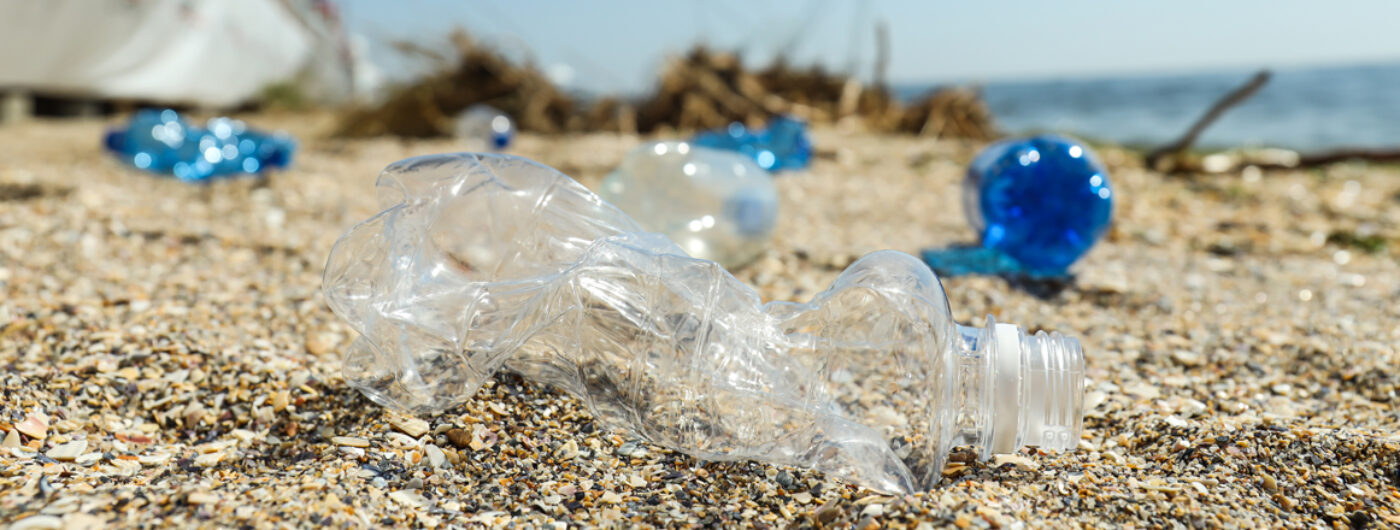
On World Environment Day, the UfM calls for urgent action to tackle concerning levels of plastic pollution in the Mediterranean Sea
- The Mediterranean Sea is one of the most plastic polluted areas in the world. The leakage of plastics into the sea is likely to double by 2040 if waste management is not radically improved. Studies also suggest that if current trends continue, there could be more plastic than fish in the sea in 25 years’ time.
- Approximately 730 tonnes of plastic waste are released into the Mediterranean daily. This is not only a pressing environmental issue, but a socioeconomic and public health challenge as well since plastic pollution is a vector for invasive species, it accumulates in the form of microplastics in the fish humans consume, and negatively impacts key industries in the region like tourism.
- While removing plastics from the sea is crucial, reducing their use and preventing their entry into marine environments is even more essential. The UfM remains committed to promoting sustainable blue economy policies and initiatives such as the Blue Mediterranean Partnership that propel the much-need blue and green transition forward in our region.
5 June 2025, Barcelona – On World Environment Day, the Union for the Mediterraean underscores the need for urgent action to tackle the threats posed by plastic pollution in the region. Although the Mediterranean Sea represents less than 1% of the world’s ocean area, it is home to almost 20% of all known marine species, making it a one of the most important marine biodiversity hotspots globally. It is also home to one of the largest concentrations of marine plastic pollution in the world with some 730 tonnes of plastic waste released into the sea daily. If plastic production continues to grow at a rate of 4% annually and waste management is not radically improved, the leakage of plastic into the sea could double by 2040 and there could even be more plastic than fish by 2050.
The accumulation of pollution in the Mediterranean, fueled largely by the combination of high coastal population density, mass tourism, and limited water exchange in the sea’s semi-enclosed structure, poses very serious environmental, public health, and socioeconomic risks, the effects of which are still being studied. Attempts counter this critical situation to meet the UN Sustainable Development Goals must therefore revolve around promoting circular economy policies that minimise the use of plastics and prioritise the use of biodegradable and more durable plastic alternatives.
The UfM has long been a proponent of sustainable blue economy initiatives that foster socioeconomic development by using marine resources responsibly. The Blue Mediterranean Partnership (BMP), a multi-donor fund promoted by the UfM that mobilises investments in sustainable blue economy projects in the Southern Mediterranean and Red Sea areas, is a flagship initiaive in this domain, with announcements regarding its progress expected next week at the United Nations Oceans Conference in Nice. Other related UfM priority areas include maritime clusters, decarbonisation, marine biodiversity, blue jobs, or renewable energy, among others, for which more than €500M euros have been mobilised since the first UfM Ministerial Declaration on Sustainable Blue Economy in 2015.
“As we mark World Environment Day, it is crucial we recognise that the growing tide of plastic waste is not only an environmental issue, but one that directly impacts the wellbeing of our communities and economies,” said UfM Secretary General Nasser Kamel. “Cross-border issues including platic pollution require cross-border solutions. The Union for the Mediterranean will always get behind regional cooperation initiatives that advance sustainable development and safeguard our precious sea for the generations to come.”

